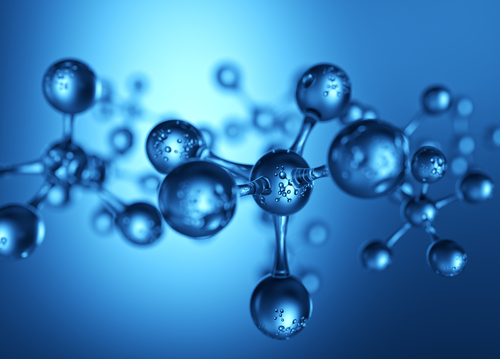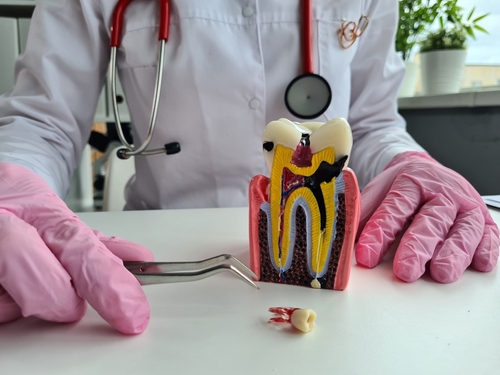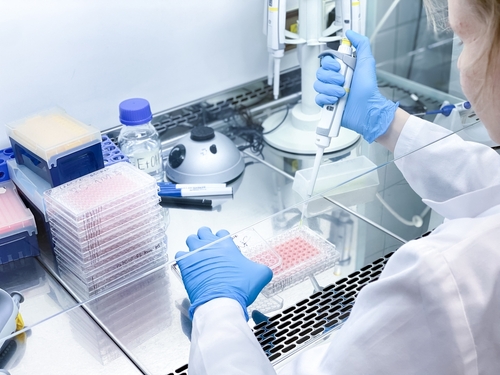
There are several types of Biology Ph.D. programs to consider. If you love to work in a laboratory, enjoy sharing what you know about biology and the wonders of the human body with others, or would like to be a respected researcher one day, a biology Ph.D. might be just the right choice for you.
Ph.D.s That Pay: The 15 Highest Paying Doctoral Degrees
While it is a degree heavily focused on in-depth research, it is a great way of starting your scientific career, as many graduates are hired for postdoctoral research positions.
Even though it’s temporary, it gives them a chance to work with experienced scientists, learn their techniques, and broaden the knowledge they already have in the field they choose to pursue. Some go as far as publishing works containing all of their observations from that period of time.
Biology is such an extensive academic discipline that everyone is bound to find the area they would like to pursue their career – including Molecular Biology, Computational Biology, or Marine Biology.
Ph.D. in Oral Biology

The oral biology Ph.D. course, as the name suggests, is recommended for those who wish to continue their research in dental medicine.
It focuses on the oral cavity – the structure, function, and development of tissues inside of it, as well as their interrelationships with other organs in the human body.
Ph.D. graduates in oral biology usually work either at a university or a hospital, where they can continue their research with clinical dentists’ help. Some choose to teach biology, microbiology, or pathology at the postsecondary level. With an additional teaching degree, they can teach biology in high school.
Ph.D. in Cancer Biology
Ph.D. in Cancer Biology provides students with all the necessary knowledge and research training to contribute to the progress in research about the prevention, detection, and treatment of cancer. In most cases, the program’s curriculum will include subjects like disease pathology, basic cell biology, and translational research.
With a Ph.D. in cancer biology, you can decide to either continue your academic career and research or combine it with a medical degree and devote yourself to treating patients. Some jobs you can pursue include biological science professor, medical scientist, oncologist, oncology surgeon, or health specialist professor.
Ph.D. in Molecular Biology
Molecular biology studies the structure and nature of the molecular building blocks of matter and life. A Ph.D. in molecular biology focuses on the interaction between different cells in the body, including the natures of DNA, RNA, and more.
There are several careers that you can choose from with a doctorate in molecular biology in education, healthcare, or scientific institutions, including biochemist, biophysicist, medical scientist, microbiologist, natural science manager, or postsecondary biological science teacher.
Ph.D. in Marine Biology

Marine biology is one of the fields of oceanography. The degree focuses on the physiology, biology, neurology, habits, and behaviors of marine organisms and may include the study of their interaction with their ocean environment.
Some topics students of marine biology will cover in class include marine conservation, marine evolution, chemical, physical and biological oceanography, applied marine biology, and more.
As a marine biology doctorate, you can decide to pursue a career as, for example, a biology professor, biology teacher, wildlife biologist, hydrologist, aquatic scientist, or environmental scientist.
Ph.D. in Computational Biology
Computational biology involves using computers and computer science to understand and model the structures and processes of life. It uses computational methods, such as algorithms, to represent and simulate biological systems, as well as to interpret experimental data.
With a Ph.D. degree in computational biology, you have several career options available to you. Those include zoologists and wildlife biologists, biochemists, statisticians, microbiologists, and natural science managers. Moreover, since the degree is not only focused on biology but also on technology, you can acquire jobs such as a data analyst or data scientist.
The 10 Best Doctor of Immunology Degree Programs: Salary and Information
Ph.D. in Biology – Admission Requirements
The school might require a bachelor’s degree in biology or a related field to get admitted and skills in mathematics, chemistry, and physics. For some graduate programs, you might need a minimum grade point average of 3.0, letters of reference, or some other indication that shows your potential to research.
Obtaining a Biology Ph.D. – The Requirements
Even though the requirements will vary depending on the school and the area of study you choose to pursue, it is possible to distinguish some common features between all of them. First of all, all the students that are interested in obtaining a Ph.D. need to successfully complete all the core and elective credits they took within their program.
Secondly, the students need to remain in the so-called ‘good standing,’ which usually means they need to have a GPA of 3.0 or higher in all their courses (although the required GPA might differ depending on the university).

Once a Ph.D. candidate has finished all the coursework, they will most probably have to go under a qualifying exam, which is a test that shows how well the student has grasped the course material. However, keep in mind that this varies between Ph.D. biology programs, so it is possible that you will not have to go through an exam.
When that is done, the candidates are faced with another stage of recruitment – they need to submit a proposal for independent study, as well as their dissertation (of which the graduate school usually outlines requirements.
The doctoral candidates must also submit a completed prospectus for the dissertation, approved by several parties, such as the director of graduate studies. Once they have it done, they go through an oral exam, during which they need to prove that their dissertation will be a valuable contribution to knowledge in their field.
Keep in mind that some graduate schools might require their students to teach while enrolled in the Ph.D. program – they go through a seminar that introduces them to pedagogy. If you want to know if that’s the case for the graduate school you wish to attend, calling them is the easiest way to find out.
The Bottom Line
If you are still wondering whether a Ph.D. in biology is the best option for you, here are some things that you should keep in mind. A Ph.D. in biology will not only give you a better understanding of the world and the microorganism inhabiting it, but it will also help you extend your knowledge of laboratory work.

Graduate students can conduct proper research and catalog the data and information they have collected, which allows them to pursue a career outside of academia.
Because of the fact that biology is such an extensive academic discipline, there are several areas of study that you can put your focus on, depending on what interests you the most. So, not only will you be securing your future but also researching something you are genuinely interested in.
Before you go: The 5 Best Doctor of Molecular Biology (PhD Mol Biol) Degree Programs: Salary and Info
